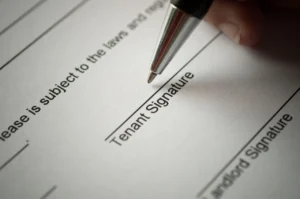10 Ways to Be a Great Landlord
 It is upsetting when we get tenant complaints as a landlord.
It is upsetting when we get tenant complaints as a landlord.
It is hard work renting apartments or homes to tenants and it takes people skills and management skills. Many times our goal as a landlord is to simply avoid tenant complaints. But there are principles, if properly used, that can reduce or eliminate tenant complaints. Do you know what it takes to be a great landlord?
By Richard Montgomery
Reader’s Question – What makes a great landlord?
Question: Monty, My husband and I own about 75 units in 25 plus buildings.
He has a good day job and I manage the apartments. We have been expanding slowly for over 20 years. This is not easy work. Over the years we have had tenants occasionally complain about different things but we always shrug it off as sour grapes or “they don’t get it.”
Yesterday we got a complaint letter that several tenants signed, which is upsetting. What makes a good landlord?
Answer – Managing apartments is hard work
Monty’s Answer: Owning and managing apartments is very hard work. The environment and working conditions vary considerably based on location and size of the city. As a portfolio expands the management responsibilities expand as well. Management practices must be tailored to the environment, the clientele and working conditions. That said, there are a number of principles, if properly utilized, can reduce or eliminate complaints. This leads to less turnover, less management intervention and happy employees and occupants.
No. 1 – Treat tenants respectfully
We all know high maintenance people. Whether late with the rent, a sharp tongue or simply unreasonable, being respectful can be difficult. There are many resources to learn more about techniques to employ when dealing with difficult people. Getting More is a book that teaches readers how to negotiate respectfully. The National Association For Community Mediation is a place where you can take classes on dealing with difficult people, and YouTube.com has many videos on the subject.
No. 2 – Be true to your word as a landlord
As an example, when you say it will be fixed on Tuesday, fix it on Tuesday. This may sound more difficult to deliver on, than it actually is to deliver. This involves work on the part of the landlord to identify a person, or multiple people, who can deliver on fixing the problem right the first time . They have to be organized and talented enough to stay on a schedule. It is creating a mindset to build an organization the right way. Every person involved in that “being true to your word” process must understand it and be trained and supervised to be able to carry it out.
No. 3 – Keep your property in top shape
Preventive maintenance, timely repairs by qualified people and utilizing products best designed for the job will pay dividends. If paint peels, paint it. When an air conditioner breaks down, fix it or replace it. If you have no funds to do this, then something is wrong. Do you have a replacement repair fund you pay into monthly?
No. 4 – Be picky about accepting tenants
It is always tempting to “take a chance” on a prospective tenant as you want the income. On the other hand, if they move in and become a collection problem you have gone backwards. Review your rent-up procedures and alternate background check services. Most landlords will occasionally get stuck. It is part of the business, but if it is happening too often, you can improve. Also stay up on the latest guidelines from the U.S. Department of Housing and Urban Development.
No. 5 – Run it like a business
Many issues that affect some landlords can be minimized. An example is a move-in/move-out report, using it will be a breath of fresh air. A visit on move-out day can often reduce problems before they happen. If the tenant expects you to be there and understands you are going out of you way to help them get their security deposit back in 3 days instead of 2 weeks, most will appreciate it. Include your house rules as a part of the lease and let them know before they sign a lease that you enforce them.
No. 6 – Train and manage employees and contractors closely
When bringing a new employee or new vendor into a relationship with you and your company, an orientation booklet and specific training to set the desired expectation is vital. It is even better if that conversation takes place as part of the interview process. One of the most common complaints in apartment management is often directed toward a specific employee.
No. 7 – Pay your vendors on time
The old saying “fast pay makes for good friends” is an important part of holding a good team together.
What kind of a message does a contractor or employee receive with slow pay when you really need them?
No. 8 – Stay close to the business
It is your responsibility to know how your buildings are being managed.
Being on the premises regularly and talking to employees, contractors and tenants allows you to keep a pulse on the happenings.
- Are the neighbors getting along?
- Did the contractor finish painting the floor as agreed?
- Did the Jones’ move-in go as planned?
No. 9 – Be fair, consistent and follow through on what you promise as a landlord
When this principle is in place the tenants, employees and contractors know they can expect this level of treatment in a relationship with you and your company.
It is natural that they will reciprocate in kind.
While the tenant does not have the same motivation as the others, it is your job as the leader to mentor and teach your employees to live the principle.
No. 10 – Think like a steward
A steward is defined as someone who manages another’s property.
The idea is to see yourself as a temporary custodian who will diligently care for the property until such time as it is passed to the next “steward.”
And, you want to pass it on as a better property than when you found it.
The examples provided with each of these 10 ways to be a great landlord tips are just one of many examples that could be applied.
Conclusion
The examples provided with each of the 10 examples of how to be a great landd are just some of the many examples that could be applied. It is not easy, but if a property owner practiced each and every one of the ten principles, it would be extremely out-of-place for a tenant or tenants to find a reason to complain.
Source: rentalhousingjournal.com













 Accessibility
Accessibility